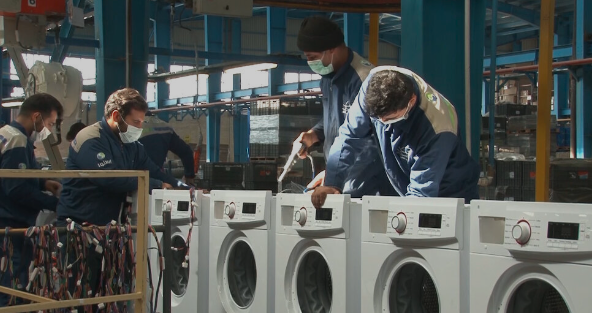Importance Of Artificial Intelligence For Optimizing Wash Cycles.

In the fast-evolving landscape of technological advancements, Artificial Intelligence (AI) has emerged as a revolutionary force, reshaping various industries. One such sector that has witnessed a significant transformation is the laundry and washing machine industry. This article delves into the profound importance of artificial intelligence for optimizing wash cycles, highlighting the innovative strides that AI has made to enhance efficiency, sustainability, and user experience.
Understanding the Basics: AI in Washing Machines
Unleashing Precision with AI Algorithms
Traditional washing machines operate on predetermined settings, often leading to suboptimal results for diverse laundry loads. Artificial intelligence, however, introduces a paradigm shift by employing advanced algorithms that adapt to the specific characteristics of each load. This adaptability ensures a tailored approach, optimizing water usage, detergent quantity, and cycle duration for superior cleaning outcomes.
Sensory Intelligence: The Key to Enhanced Performance
AI-equipped washing machines are equipped with an array of sensors that gather real-time data during the wash cycle. These sensors detect factors such as fabric type, stain intensity, and water quality, allowing the AI system to make dynamic adjustments. The result is a level of precision that surpasses conventional washing machines, leading to cleaner clothes and increased fabric longevity.
Revolutionizing Efficiency in Wash Cycles
Energy Optimization for Sustainability
One of the most significant advantages of integrating AI into washing machines is the optimization of energy consumption. Through continuous monitoring and analysis, AI algorithms identify patterns and trends in energy usage, enabling the machine to automatically adjust settings for optimal efficiency. This not only reduces the environmental impact but also translates into substantial cost savings for users over time.
Time Efficiency: A Boon for Modern Lifestyles
In a world where time is of the essence, AI-driven wash cycles offer unparalleled time efficiency. By learning from past usage patterns and understanding load compositions, the washing machine can predict and execute cycles in the shortest time possible without compromising on cleanliness. This is especially beneficial for individuals with hectic schedules, providing a seamless integration of laundry tasks into their daily routines.
Enhancing User Experience and Customization
Intuitive Interfaces and Smart Controls
AI-infused washing machines come equipped with intuitive interfaces that simplify user interactions. Smart controls, often accessible through mobile applications, allow users to monitor and control their machines remotely. The AI system learns from user preferences, providing personalized recommendations for wash settings and alerting users to potential issues. This level of connectivity not only enhances convenience but also fosters a more user-friendly experience.
Adaptable to Changing Lifestyles
The modern lifestyle is characterized by variability, and AI in washing machines caters to this by being adaptable. Whether it’s a sudden change in water quality, a new type of fabric, or an adjustment in detergent preference, the AI system swiftly accommodates these variations. This adaptability ensures that the washing machine remains a valuable asset, evolving with the user’s changing needs and preferences.
Overcoming Challenges and Future Prospects
Addressing Concerns: Privacy and Data Security
As AI becomes more ingrained in household appliances, concerns about privacy and data security arise. Manufacturers are increasingly focused on implementing robust security measures to protect user data. Transparent policies and stringent safeguards help build trust, ensuring that the benefits of AI in washing machines are enjoyed without compromising individual privacy.
Future Prospects: AI and Sustainable Laundry Practices
Looking ahead, the integration of AI in washing machines holds immense potential for advancing sustainable laundry practices. Predictive maintenance algorithms can identify potential issues before they escalate, reducing the need for frequent repairs and extending the lifespan of appliances. Furthermore, AI can contribute to the development of eco-friendly detergents and washing processes, aligning with global efforts towards environmental conservation.
Conclusion
In conclusion, the incorporation of Artificial Intelligence into washing machines signifies a monumental leap forward in the quest for optimized wash cycles. From precision and efficiency to user experience and future sustainability, AI is reshaping the way we approach laundry tasks. As technology continues to evolve, the washing machine equipped with AI stands as a testament to innovation that not only simplifies our lives but also contributes to a more sustainable and connected future.




